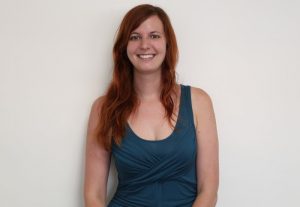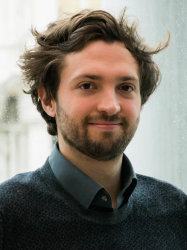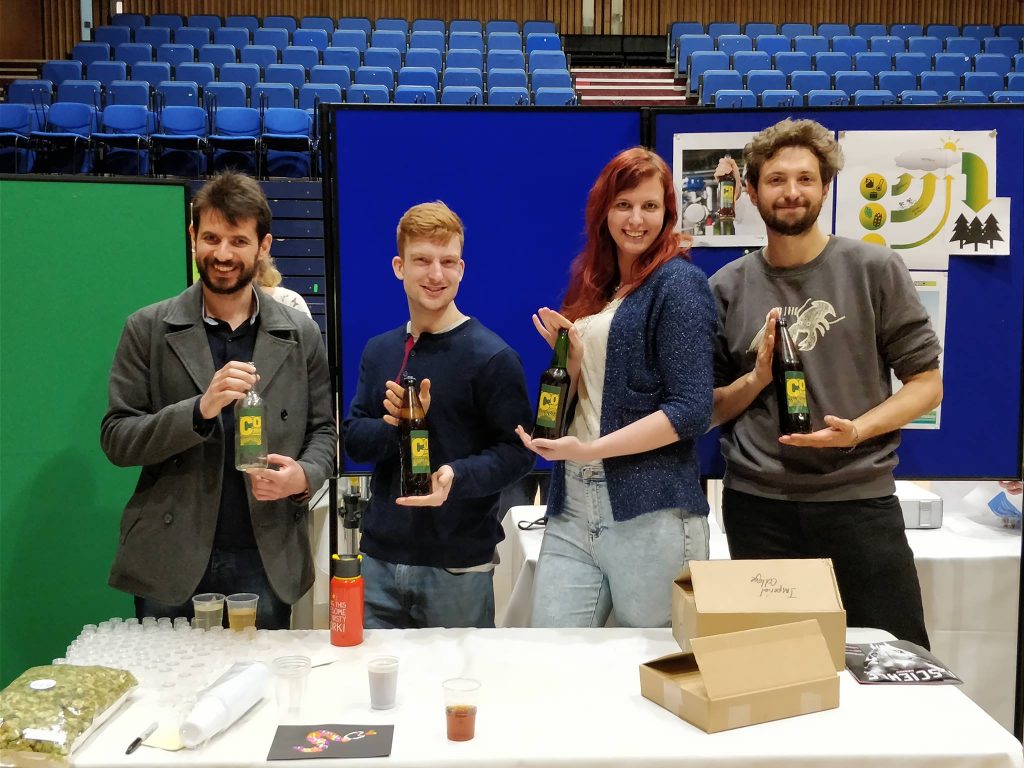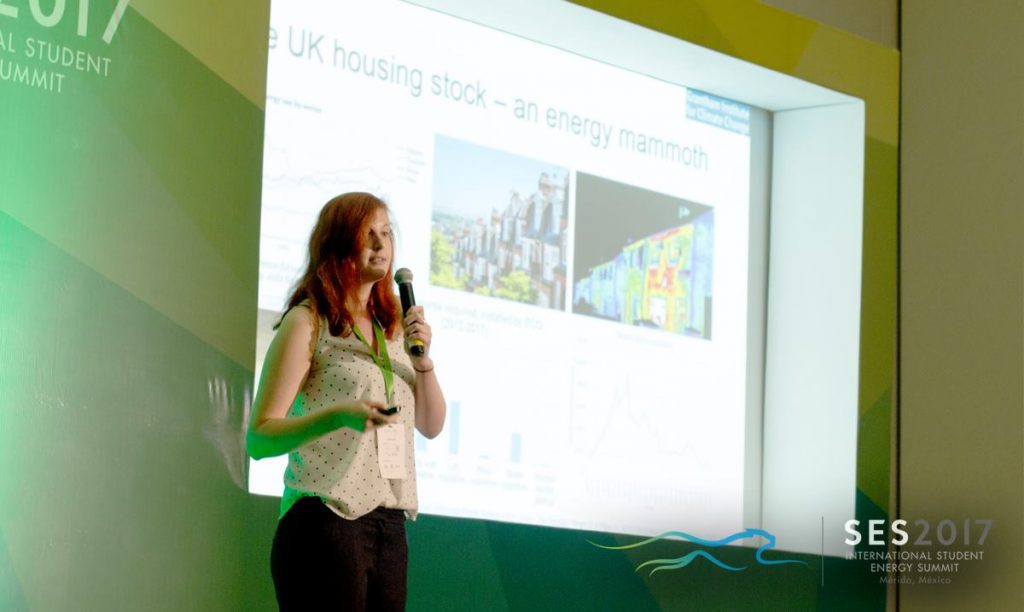Imperial College London will host the 2019 International Student Energy Summit (SES 2019, 17 – 20 July), the largest youth energy conference in the world, which will bring together over 650 students from around the world to discuss all things energy-related. The vision for this year’s Summit is ‘breaking barriers’ – it seeks to be inclusive and foster reflection and discussion across a variety of challenges unique to this point in time.
Chemical Engineering PhD students Luciana Miu and Michael Ehrenstein are responsible for bringing the Summit to Imperial, following a successful bid in 2017. Luciana acts as the Sponsorship Vice-Chair, and Michael the Finance Vice-Chair. Amidst busy preparation for the conference we spoke to Luciana and Michael about their research, motivations and hopes for this year’s conference.
Q: What did you do before you joined Imperial?
 LM: We’ve both got science and engineering backgrounds: Michael did an undergraduate and MSc degree in Chemical Engineering at ETH Zurich, and I completed an undergraduate degree in environmental science and an MSc in renewable energy engineering at the University of Edinburgh.
LM: We’ve both got science and engineering backgrounds: Michael did an undergraduate and MSc degree in Chemical Engineering at ETH Zurich, and I completed an undergraduate degree in environmental science and an MSc in renewable energy engineering at the University of Edinburgh.
Q:What kind of research does your PhD involve?
 ME: We’re both part of the “Science and Solutions for a Changing Planet” Doctoral Training Programme, but we do quite different research. I come from a more mathematical background, and my PhD focuses on the optimization of supply chains and other systems in the context of environmental pressures.
ME: We’re both part of the “Science and Solutions for a Changing Planet” Doctoral Training Programme, but we do quite different research. I come from a more mathematical background, and my PhD focuses on the optimization of supply chains and other systems in the context of environmental pressures.
LM: My PhD is grounded in social science research, focusing on analysing the barriers and drivers to investment in energy-saving technologies in homes.
Q: Are you involved in anything else in the Department of Chemical Engineering, or the wider College?
LM: We actually do quite a lot together. We were both on the PhD representative committee of the Chemical Engineering department in 2017-2018, and prior to that we were on the student-staff committee of the Grantham Institute for Climate Change and Environment. We’re also two of the founders of a project called CO Brew where we’re developing a low-carbon beer. We’ve got a fantastic team that we’re working with and, of course, the project involves two of our favourite things: scientific outreach and beer. Aside from that I like to combine my science with art via poetry-writing, which I’ve has started reading at events around the College.
ME: I’m also on the Imperial Ultimate Frisbee team.

Q: In terms of climate change: where are we headed and what are your hopes for the future?
LM: The world is definitely not in a good place at the moment, and it is a real challenge to keep it from getting worse. However, we are undoubtedly the generation that must and will deliver the change that needs to happen in order to mitigate and adapt to climate change. And what’s exciting is that we have not only a wealth of solutions waiting to be deployed, but also a global community of determined youth who will deploy them for the good of our planet and society. You only have to visit climate action gatherings such as the Conference of Parties to see that for every concerned bystander reluctant to take the lead, there is a small army of innovators and changemakers who are proactively turning the energy transition from an impossible challenge into an exciting opportunity. And so many of these changemakers are young people, who are increasingly coming together under associations, startups, networks and projects generating disruptive change. We, as tomorrow’s energy challengers, have as much the urgent motivation as we do the sense of community that will enable us to create a better future for our world. Our main hope is that other young people feel the same optimism when working in a field headlined by negative news day after day.
Q: How did you get involved with Student Energy in the first place?
LM: I had the opportunity to attend the 2017 International Student Energy Summit in Mexico, where I was inspired by an international delegation of young energy enthusiasts brought together through the efforts of the Mexican student committee and Student Energy, a global charity working to empower future energy leaders. I came back to Imperial with the nagging feeling that London would be a fantastic place to inspire other young energy enthusiasts, and after a pretty straightforward session of convincing roped Michael into joining my efforts to put together a committee and submit the bid to host the next edition of the Summit.

Q: What motivated you to submit a bid to host the largest student-lead summit on energy in the world?
ME: Energy is one of the greatest challenges that we face today, and also one of the greatest opportunities. Many of us have realised this and are tackling it through our research or our jobs, but organizing the Summit enables us to have a much wider impact. Delivering an event of this magnitude, with youth empowerment at its core, means that we can play a part in inspiring students around the world to become part of the global community that will lead the energy transition. We both saw it as a great chance to have real impact on a community of future energy leaders, but also to learn about the actual mechanics of creating and empowering this community – a multi-disciplinary, multi-cultural engine of innovation and advocacy.
Q: What do your roles as organisers of the summit involve?
LM: Michael is the Summit’s Finance Vice-Chair. His main tasks include setting and managing the (hefty) Summit budget, creating cashflow projections and managing the Summit’s account alongside the Chemical Engineering finance division. I’m the Summit’s Sponsorship Vice-Chair, and my role focuses on raising the funds necessary to cover the expenses of the Summit while keeping the delegate registration fees as accessible as possible. Both of our roles are quite demanding, particularly because they’ve both come with a steep learning curve. We’ve had setbacks, we’ve had challenges, but we’ve had just as many successes and learning opportunities. Like any project that you’re working on for two years, it’s not been a straight road across a field; more a narrow path crossing a mountain ridge. In bad weather.
Q: What have you learnt from the SES 2019 experience so far?
ME: We’ve definitely both learned a lot from working with such a large and diverse team; there are over 30 of us, spread across Canada, the UK, Ireland and France. We all have different backgrounds, which we’ve come to see as an asset because of the new perspectives and insights it offers. We all have different ways of working, which has taught us about flexibility and communication. We’ve also learned to be self-reliant as a team, taking on tasks we never would have thought we’d have to do as students. Our committee chairs have been very good at making sure that we never feel like these tasks are impossible for too long – it may be harder because we’re full-time students, but it’s never impossible. From a personal perspective I’ve learned a great deal about the financial comings and goings of large institutions.
LM: I have learned more than I ever thought I would about sales and negotiations. But possibly most importantly, we’ve both learned about the importance of prioritisation and time management. Being full-time PhD students while working on such a big project has definitely been challenging, but has also equipped us with some key skills for making the most out of our time in our future careers.
Q: What is your biggest hope for SES 2019?
ME: We hope to deliver a memorable Summit, that our delegates enjoy, are inspired by, and learn from. If we manage to create a space where new ideas are generated and relationships are built for solving the big challenges of our global energy system, we’ll have achieved our main goal. We also hope to leave something behind. The legacy of the Summit has always been its delegates, who go on to shape their communities and solve pressing problems with ingenious solutions. So as long as we can inspire and equip those delegates even a little bit, we’ll have come a step closer to a bright energy future.
Q: What can we expect to see from you after SES 2019?
LM: After the Summit is over, both of us will probably need a little while to recover. After this I’ll take up a fellowship at the Parliamentary Office of Science and Technology, taking a break from my PhD. After my PhD I hope to go into policy-making.
ME: I will be headed to ETH Zurich to do a research placement and undoubtedly enjoy the wonderful experience that is Zurich in the summer. The end of our PhDs is close, but still seems very far away, so there’s a big “Who knows?” around the question of where we’ll be headed afterwards. I’m aiming to take up a research job in the energy sector, working on something a bit more high-level than the nitty-gritty technical topic of his PhD. However, the same way that we never thought we’d be putting on an international energy Summit in London, we may be doing something we never thought next year, in 5 years, in 10 years. Who knows.
Q: Where can people go to find out more?
Check out the SES 2019 website – you can find out all about Student Energy and details of the summit, including how and where to buy tickets.
The summit will take place from 17- 20 July at the Imperial College London South Kensington campus.